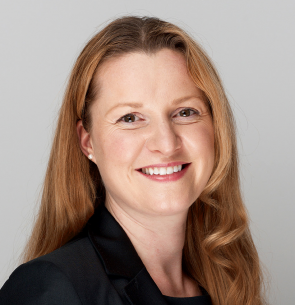
Prof. Dr. Katja Schenke-Layland
Director, Fraunhofer Institute for Interfacial Engineering & Biotechnology IGB
Katja received a master of science (M.Sc.) in biology, psychology and sociology in 2001; and her doctorate degree (Dr. rer. nat.) in biology in 2004 from the Friedrich Schiller University (FSU) Jena, Germany. She worked as a researcher at the Departments of Anatomy (2000-2001) and Cardiothoracic Surgery (2001-2004).
Katja was a postdoctoral research fellow at the Saban Research Institute at the University of Southern California’s Children’s Hospital Los Angeles (2004-2005).
She was also a postdoctoral research fellow at the David Geffen School of Medicine at University of California Los Angeles UCLA, USA (2005-2008). In 2008 she was appointed as Assistant Research Professor in the Department of Medicine/ Cardiology at UCLA (2008-2009) and is currently an Adjunct Associate Professor.
In January 2010, she became the group leader of the Fraunhofer-Attract Group at the Fraunhofer Institute for Interfacial Engineering and Biotechnology (IGB), Dept. of Cell and Tissue Engineering in Stuttgart, Germany and later accepted the position of Department Head. She was appointed Interim Institute Director of the Fraunhofer IGB, starting in 2016.
Katja accepted her call as Professor of Biomaterials in Regenerative Medicine at the University Hospital Tübingen UKT in 2011. She coordinates the bachelor “Vital Implants” and master “Implantology” modules in the Biomedical Technologies program.
Biomedical Business Creation in Baden-Württemberg
Biomedical Business Creation in Baden-Württemberg
The German federal state of Baden-Württemberg is well known for its strong health care industry. In 2013, there were over 1,000 companies generating over 22 billion euros of taxable revenues in the health care industry, with start-ups and SME’s producing almost half of the gross value added. The Fraunhofer Gesellschaft is an industry-near public research organization focused on the translation of innovation into products and services. The startup framework and funding mechanisms by which the Fraunhofer Gesellschaft promotes entrepreneurship and creates cutting edge spinouts will be a main topic of discussion as well as a number of examples of successful spinouts from public institutes in Germany,
